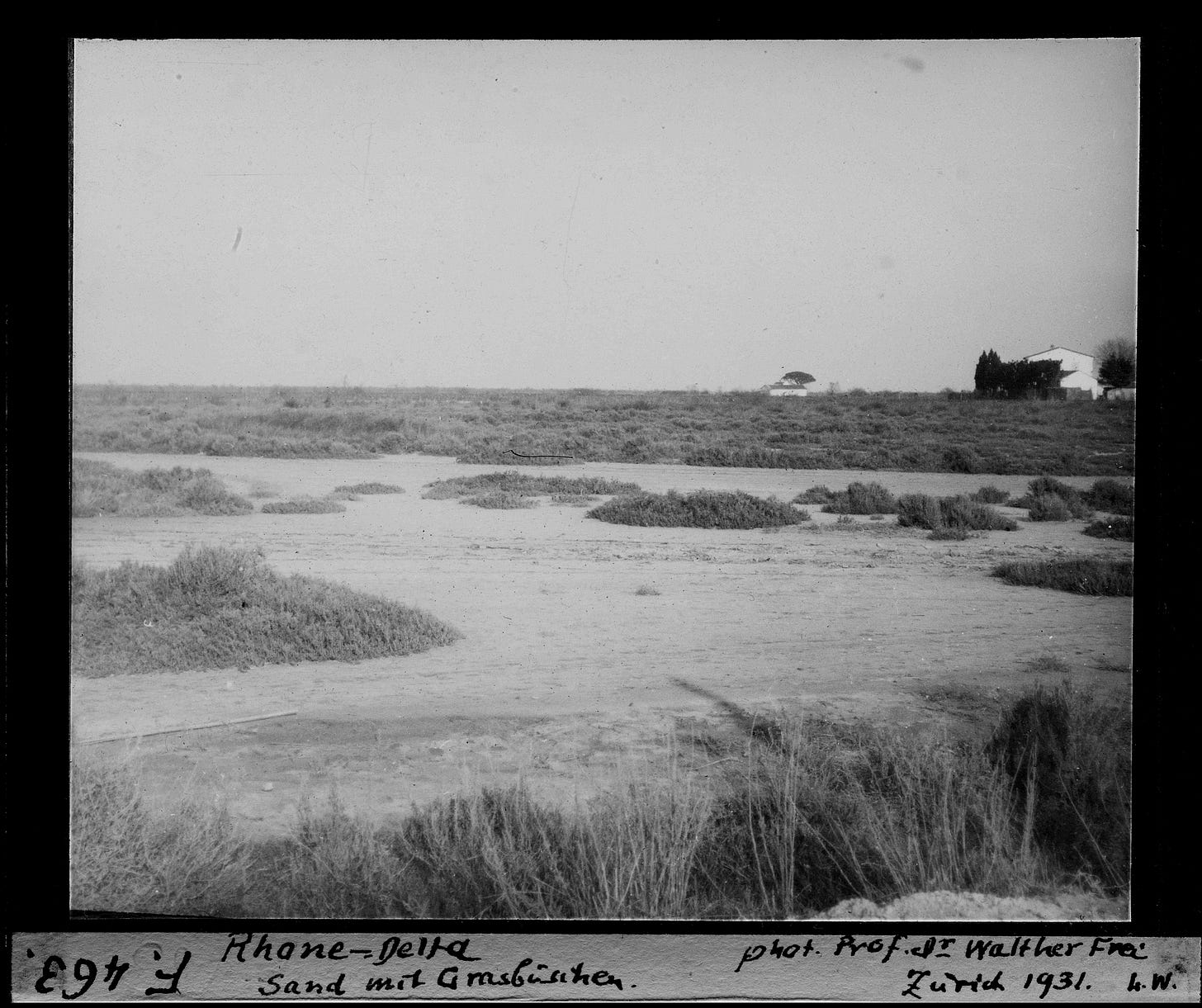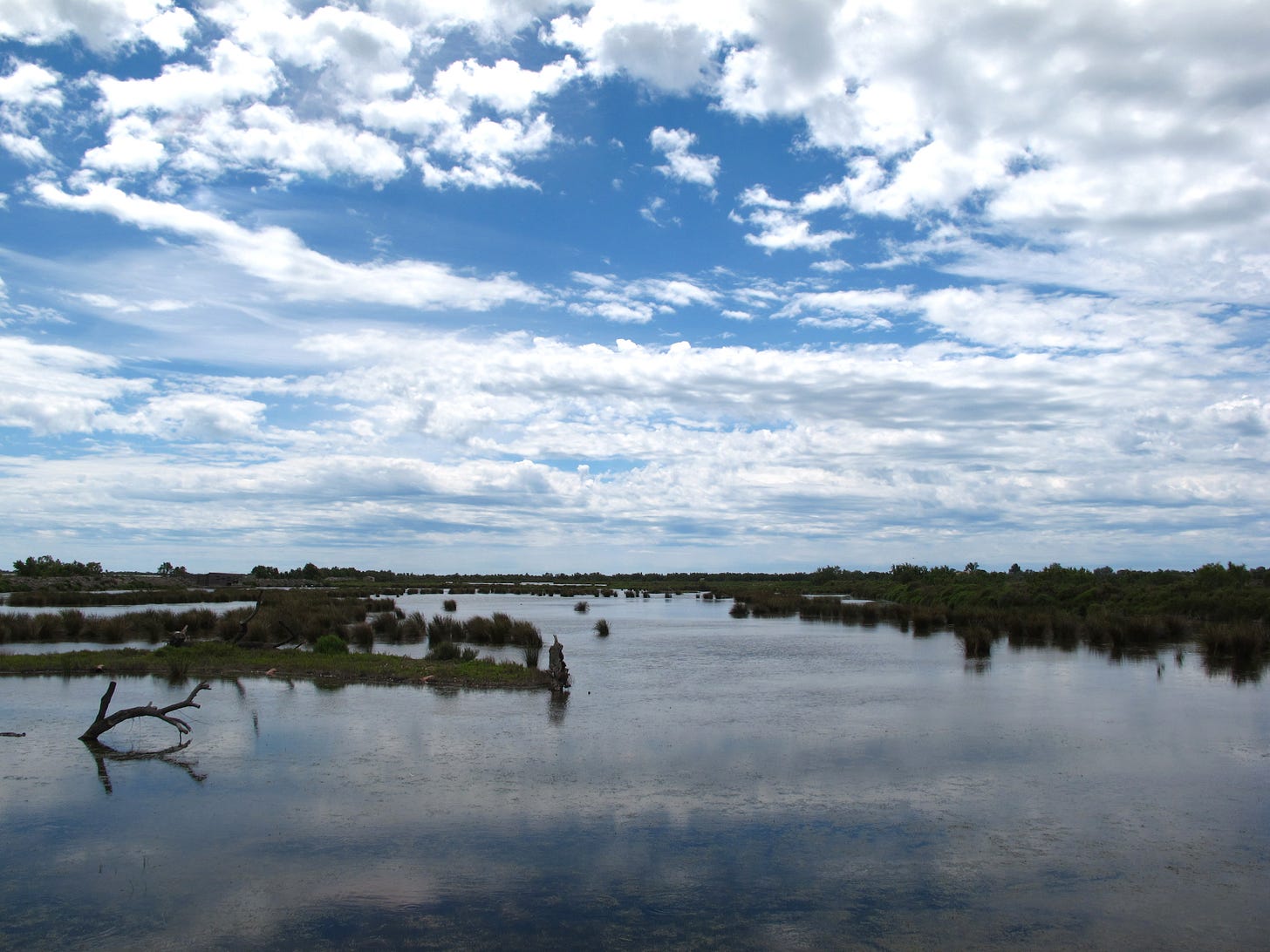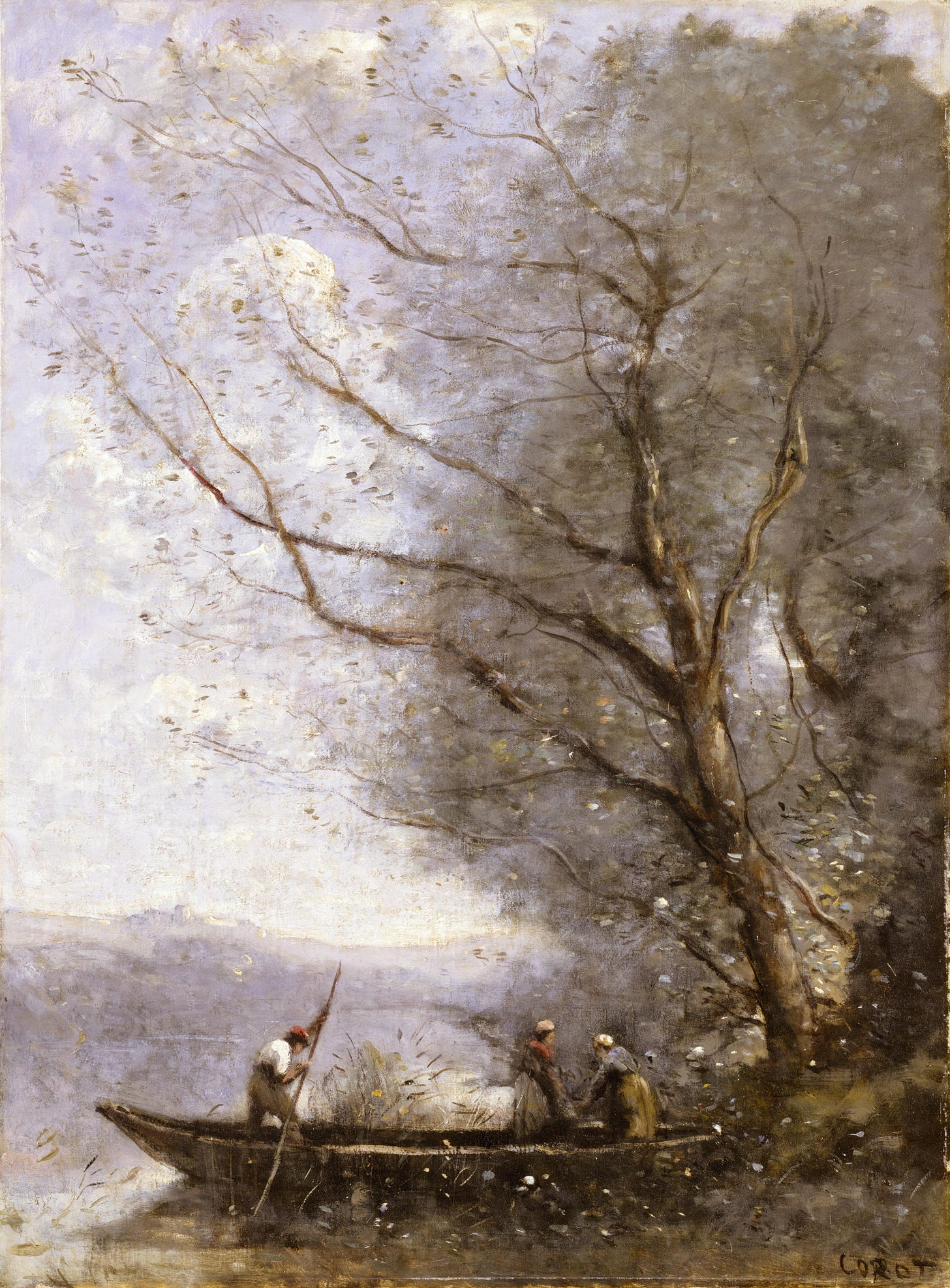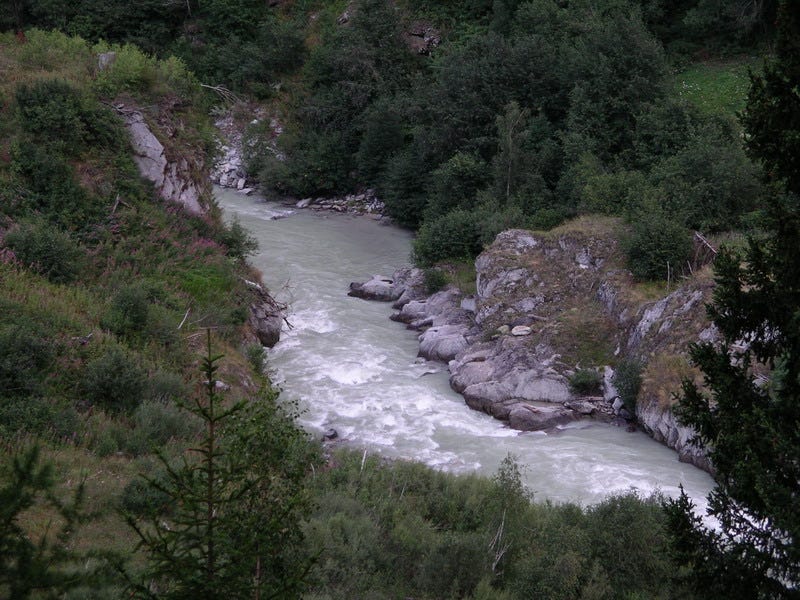
Here is the opening sentence I initially drafted for this post when I began working on it a week ago: “Today is a big day: this is my 100th Substack post.”
I guess that was tempting fate. As you know if you read what actually did become my 100th post—and if you didn’t, it’s not too late to catch up on history’s most anti-climactic century post ever—things didn’t go quite as planned. So what was going to be post #100 now becomes #101. Call it the start of Season Two.
Incidentally, I am writing this updated post while sitting in the waiting room of an auto dealer, hoping to get good news about a needed air conditioning repair to our van. If you felt sorry for me while reading about my miserable A/C-less drive to sultry Washington, DC—and if you didn’t, you are a heartless creature indeed—what better way to help keep “From My Bookshelf” afloat, and me hydrated, than a paid subscription?
(An aside: do others remember the endlessly clever ways that old-time radio shows used to come up with in order to advertise their sponsors? Perhaps I should work on similar subscription appeals.)
I wanted to write about something important for #100. But that creates an awful lot of pressure. How do you know that you’ve made the right choice? What merits the honor of being selected for such an august occasion? What are the selection criteria?
Now, of course, all of that pressure has vanished, washed away by the torrential rains that accompanied me to DC. So I’m off the hook. But even if this is now #101, I still wanted to do something that feels at least a little special, to me if to no one else. And I decided to mark the occasion by returning to one of the authors that most excited me over the first 99 posts.
And I opted for… (drum roll!)… Henri Bosco, about whose magical novella The Child and the River I wrote enthusiastically a year ago. Ever since then I have been wanting to try another Bosco book to see if lightning would strike twice. So I read his best-known novel, Malicroix, in Joyce Zonana’s translation for NYRB press.
Set in the Camargue, a marshy region of southern France where the Rhône flows into the Mediterranean, Malicroix has an otherworldly feel, a vaguely foreboding mix of mystery, fable, and legend, in which powerful natural forces seem haunted by hidden supernatural powers. The protagonist, Martial de Mégremut, learns that he has been named heir to a great-uncle, the Malicroix of the novel’s title, who possessed what remained of a once large family estate: some lands, herds, an old house, and—in particular—an island in the middle of the Rhône.

In order to take possession of his inheritance, Mégremut must travel to this island, which is remote, desolate, and uninhabited except for Malicroix’s former servant, the elderly Balandran. There, in Malicroix’s own simple dwelling, Martial meets the family notary, Dromiols, executor of the will, who outlines the unusual conditions attached to the estate: in order to inherit, Mégremut must remain on the island, without leaving, for three months. If he can do that successfully, Balandran will inform him of one last condition, an unknown task that Malicroix has left for him to fulfill. Only if he does that will he finally come into his inheritance.
What follows is an elemental struggle for Mégremut: against nature, against human enemies, and even against himself. The island represents all the forces of nature assaulting the faint bulwark of human civilization that Malicroix had established there. Depending on the season, it is pounded by ferocious rains and roof-rattling winds; the winter is bitterly cold; the smell of dank earth constantly rises from its marshy soil and lush vegetation. The river rushes towards it, dividing into two arms that encircle it and rejoin on the opposite side, surrounding it in a swiftly flowing embrace even while eating away at the very ground under Mégremut’s feet with their erosive might. Standing guard against these forces is only the small fire that Balandran keeps alight on Malicroix’s hearth, a small bastion of life-sustaining light and warmth. Earth, fire, air, water: on Malicroix’s island, these primordial elements of nature possess an almost unearthly intensity.
The river haunted me. The nearness of its grandeur awakened my ancient fear of water, which torments my soul in the presence of rivers and streams, even seen from their banks. Flowing waters, not ocean waves, for the sea—even when it frightens—always exalts me; it is the fluidity of river waters, swift or slow, that troubles me. I find in rivers a half-seen world of fleeting forms that tempt and sometimes ensnare the heedless soul. Rivers and streams are sinuous, insinuating creatures, untamed. Not one of them has sure limits; they all soften the unstable mud of their alluvial deposits with even more silt. Nothing is precise on that moist frontier where earth and water mingle.
But not only the forces of nature threaten to dislodge Mégremut from the island. Almost immediately, he senses that Dromiols himself is hostile to the prospect of his inheriting Malicroix’s ancestral lands. Dromiols is a strong, massive figure, both physically imposing and psychologically intimidating. A man of elegance and eloquence, his size and solidity are the embodiment of an indomitable will; he is himself almost a force of nature. It is not immediately clear why he should be Mégremut’s enemy—a veil of mystery rests upon Dromiols, as upon so much in this novel, where what is most significant often seems to hover just below or just above the level of ordinary human consciousness. Never quite showing his hand, Dromiols first seeks to frighten, then to lure Martial away from the island. Gradually, we learn that he also possesses Malicroix blood; along with the four elements, “blood” is another primordial force of great importance in the novel. He has been gradually acquiring portions of the ancestral Malicroix lands and now wants to complete his achievement by swallowing up their remaining core. To do so, he is even willing to seek help from another old family, the Rambards, ancient enemies of the Malicroix clan, though he also possesses profound respect for law and can be relied on to enforce the will should Mégremut thwart his efforts and fulfill its terms.
The battle of wills between Dromiols and Mégremut mirrors a conflict within Mégremut’s own soul. In one of the book’s most compelling aspects, Bosco skillfully develops a contrast betweent the two families whose ancestral legacies struggle within Mégremut, their joint heir, as they vie for his allegiance, and as we wonder whether he can harmonize them. He is a Malicroix through his mother. Though he had never met his great-uncle, he had heard of him from his youth, always feeling admiration and “violent sympathy” for this proud, reclusive relative. He senses within himself a “strange wildness,” akin to that of his distant relative. “I felt as if, through our taste for solitude, I shared his blood,” he writes. Malicroix represents strength, wildness, independence, nature, a barely tamed pre-civilizational power held in check by determined force of will, both challenged and nourished by the elemental struggle for survival. He stands at the very boundary between nature and civilization, where the house has not yet become a village, the servant has not yet become a household, the hearth fire has not yet given rise to culture, and vengeance struggles to become justice.
The Mégremuts are the opposite, the very embodiment of civilization, culture, tradition, prosperity, enjoying an ease of existence that has been carefully shaped, preserved, nourished, and handed down from generation to generation. Mégremut himself is a gardener and botanist—the antithesis of the untamed wilderness of Malicroix’s island. They think, feel, and act as one; unfailingly courteous, they display a grace and elegance of manner that has been finely honed over generations. If Malicroix is fierce, they are mild; if he is solitary, they embody the spirit of an ancient family. If the word most commonly applied to Malicroix is “wild,” that used by Mégremut most frequently to describe his family is “gentle.” In their own way, however, the Mégremuts too are strong-willed. Theirs is a concealed will, not visible like the river’s current but nevertheless powerful beneath its placid surface; their gentleness bends but does not break, and their strength lies in their patience, endurance, and ability to wait until whatever winds buffet the family wear themselves out. Dromiols underestimates the strength of Mégremut gentleness.
I must keep watch and stoke this simple fire out of piety and prudence. I have no friend but this fire that warms the central stone of the house, generous stone from which warmth and light rise to my knees and eyes. This is where the ancient pact of fire, earth, and soul is religiously sealed between man and his refuge.
Almost to his own surprise, Mégremut finds himself determined to remain on the island and learn the futher task demanded of him. As he perseveres through three months in the depths of winter, the island reveals more mysteries: an old, blind ferryman, Le Grelu, who occasionally operates a deserted ferry close to the island; a phantomlike young woman named Anne-Madeleine, whom Mégremut once or twice glimpses on a boat in the bushes along the river’s edge and who later materializes to nurse him back to health after he falls ill in a snowstorm, winning his love, but never fully revealing her identity; and “Uncle Rat,” an aide to Dromiols who reappears at unexpected moments to warn or to assist Martial.
When Mégremut succeeds in remaining on the island for three months, stubbornly thwarting Dromiols’s efforts to dislodge him, he learns of the final task he must complete to secure his inheritance. He is to achieve a goal that Malicroix was unable to fulfill before his death, one related to the family’s history and Malicroix’s reclusive island existence. Many years earlier, Malicroix had been engaged to the beautiful Delphine d’Or. On their wedding night, as they prepared to depart on a journey, they boarded a ferry steered by a Rambard. When the ferry reached the middle of the river, close to the island, where the waters rushed towards a dangerous rock before diving to left and right, the cable snapped and the boat was swept toward the rock. Malicroix survived; Delphine and the ferryman were never found.
But the ferryman later returned: Le Grelu, the old blind man whom Mégremut has seen nearby, doing a kind of penance by restoring his rarely used ferry at the site of his crime. Malicroix desired vengeance but, moved by compassion for the old man, determined on a kind of rough justice instead: he would restage the earlier incident, riding the ferry to the middle of the river, cutting the cable, then forcing the ferryman to confess his sin as they rushed toward the rock, before landing him safely on the other side and allowing him to live. But the aged Malicroix had overestimated his own strength; his attempt failed, and though Balandran rescued both him and the old man, his plunge into the waters caused the illness that led to his death. Now, as his last will and testament, he wants his heir, Mégremut, to complete the task he could not, allowing his soul to achieve rest and enabling Mégremut to “enter into possession of the blood that is in you, but which most likely still slumbers.”

Martial makes a final return to his family home, to prove to himself that he can resist the gently but firmly insistent Mégremut embrace—where he discovers, in fact, that despite their regret at his departure to his island solitude, these proud, loving, and strong-willed relatives support his efforts and have been quietly evading Dromiols’s efforts to solicit their assistance. They bid him farewell, and the novel concludes as he attempts, with Balandran and Anne-Madeleine in the wings, to carry out Malicroix’s last wish—the outcome of which I shall not reveal.
Malicroix is a difficult book to categorize. It is a tale of the unending tension between nature and civilization, with their countervailing allures; a coming-of-age story, even though Mégremut is no longer a youth when the story begins; a story of a quest, with a hero seeking to accomplish a difficult task. Bosco sustains a mood of vague menace over 275 pages. The natural world is a source of strength for Martial but not, precisely, of comfort, and it is full of dangerous, threatening forces; outside the intimate and comfortable circle of the Mégremuts, the human world is also uncanny and ominous.
Indeed, “uncanny” is not a bad word to describe the overall atmosphere of the novel. The familiar and unfamiliar mingle here in strange, unsettling ways. The basic elemental status of earth, fire, air, and water is overlaid with a semi-mystical significance that is felt but rarely articulated. Descriptions of Mégremut’s physical surroundings blur into descriptions of his psyche; the island is almost a symbol for his soul. He repeatedly senses an intuitive meaning behind events, words, and actions, and he frequently inhabits a trancelike, visionary state where he sees into the nature of things or grasps a situation—I was going to say, “with newfound clarity,” but in fact his revelations are never entirely clear. Martial sees only in a mirror darkly, and his actions always require a degree of faith, a tenacious confidence that by waiting patiently, enduring, pushing steadily forward in the face of uncertainty, he is doing the right thing. He is often afraid, but he is never paralyzed.
A similar sense of wonder and mystery pervades The Child and the River, though that little book was not as consistently forboding as Malicroix. More than anything else, perhaps, the novel resembles a fairy tale, a Brothers Grimm story—but in the original, not the Disneyfied version. Dark forests, nature personified, lurking malignant forces, hostile relatives, hidden identities, strange challenges, hidden supernatural forces, religious symbolism, primitive justice… and running through it all, the destiny of one’s blood, which seems inevitable but must nevertheless be achieved through one’s own efforts. “The family spirit haunts me,” Martial says of his Mégremut relations. “I would be them and not myself were it not for that tiny, entrenched, irreducible something—three drops of Malicroix blood. I had always felt them present, gliding through the Mégremut blood without mingling with it.” All these elements seem to come straight from the world of ancient lore and popular fairy tale.
In attempting to characterize the book, I keep coming back to the same words: elemental, primordial, primeval. Bosco is the poet primeval, probing a symbolic reality that is incarnate above, behind, and within the world of matter. At the heart of Malicroix’s primeval struggle, as in all fairy tales, is a contest between good and evil, the most basic forces contesting against each other. This is implicit in the book’s very title, the family name of Martial’s maternal ancestors. Reflecting on that name, he says that it “suddenly rose within me, ambiguous, but with such a clear sound. Double name, whose syllables evoked opposed meanings (which I disentangled poorly) and conjured two images: the one, at the outset, of sin—mal, evil, ill—and the other, at the end, expiatory and redemptive—croix, cross, faith, belief.”
As the name suggests, and as is often the case in fairy tales, it may not always be easy to tell the good and the evil apart. The strength of that Malicroix blood is never far from violence; its virility needs taming by the very different, and gentler, Mégremut tenacity. Whether that balance can hold is an open question about which the novel’s final pages are somewhat inconclusive. Perhaps it is not surprising that a Frenchman writing in 1948 would be highly alert to both the ambiguity of primordial forces and the tenuousness of cultural achievement.
Henri Bosco deserves to be better known than he is. One hopes that NYRB will continue to bring out new translations of his work. If they do, who knows—perhaps I can circle back to him again at some point in the next 100 posts!
As always, thanks for reading. If you enjoy these essays, by all means share them far and wide and encourage your friends to subscribe. Even your enemies, for that matter. And I’ll see you next time for another installment “From My Bookshelf.”




